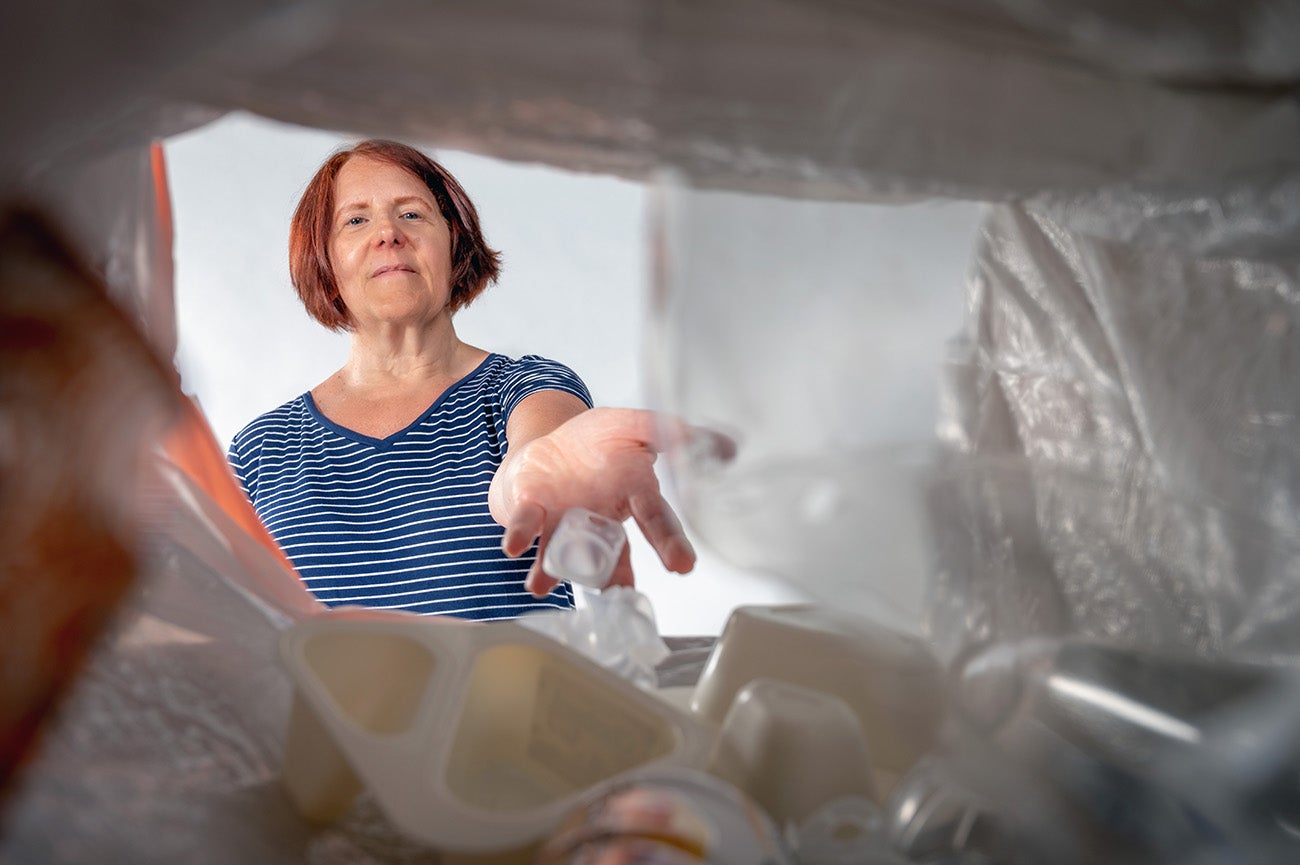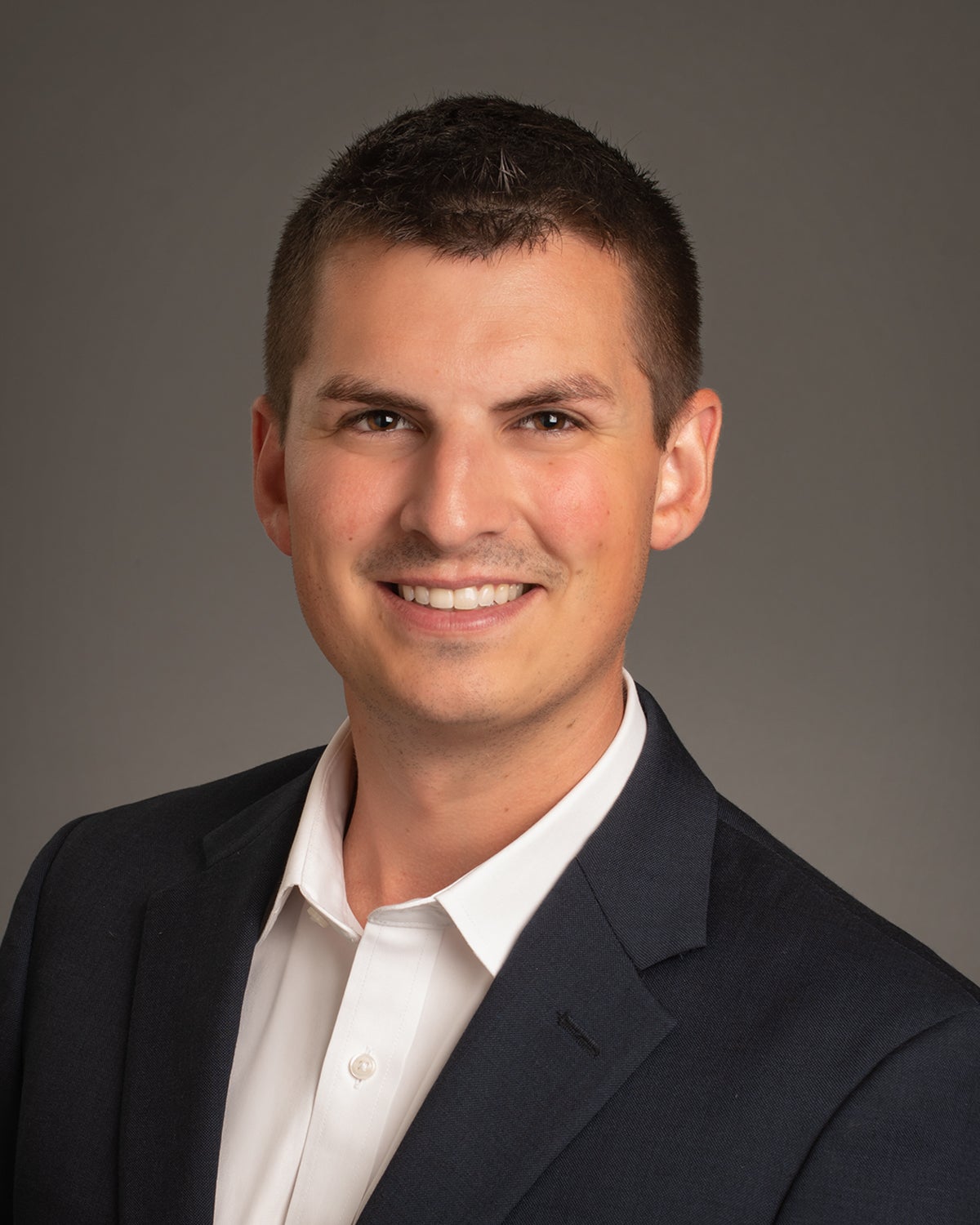
We’ve seen that familiar recycling symbol: the three arrows directing consumers to keep plastic moving through a life cycle of reuse. However, the symbol is missing one arrow that should point at a trash bin, because that’s where most of it ends up.
Currently in the United States, plastic is considered a solid waste, and the federal government doesn’t handle solid waste: that’s the responsibility of individual states and municipalities.
Each state is responsible for its glut of plastic. Some bury it. Some burn it. Some pile it up in a landfill.
“We don’t recycle very much plastic in the U.S. because we don’t have the recycling infrastructure. We never built it in this country. We outsource our recycling,” explained Ruth Jebe, the Robert V. Hansberger Chair of Business Ethics in the Department of Management and a former litigator. However, as the U.S. learned in 2018, that last method doesn’t always work.
“In January of 2018, China stopped taking plastics for recycling,” said Kat Davis, the former sustainability director at Boise State. “That changed the global market to recycle plastics.”
The crux of the issue is that all of the responsibility for plastics recycling falls on the shoulders of the consumers, not the producers. Jebe thinks that’s total rubbish.
In her research, Jebe explores alternatives to a linear plastic life cycle, which currently flows from fossil fuel extraction to production to — ultimately — waste.
In an article published in the The Environmental Law Reporter, Jebe critiques the regulatory and academic focus on plastic as solely a waste problem and makes a case that effective regulation of plastics requires a full life cycle approach.
“The circular model is like preventive medicine,” she said. “If we have a healthier approach to plastic, we’ll have less waste.” Jebe is currently scrutinizing the Break Free from Plastic Pollution Act that is before committees in the U.S. House of Representatives and the Senate.
This act, among its many proposed initiatives, would shift the responsibility of recycling plastic waste from the consumer to the producer. This regulatory scheme, called Extended Producer Responsibility, is a concept that Jebe has been interested in for over 10 years and would be a massive change for the U.S. plastics problem.
— By Nick Cesare and Brianne Phillips
Support the College of Business and Economics.
Inspired by this story? Let's chat!
-

Perrine Blakley
Senior Director of Development
-
